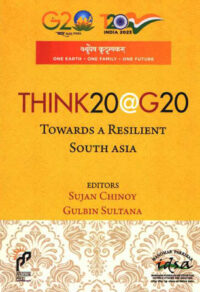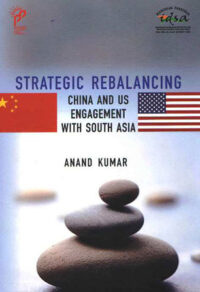AN ANTI-TALIBAN PASHTUN PERSPECTIVE ON THE TALIBAN
An old African proverb—‘Until lions have their historians, tales of the hunt shall always glorify the hunter’—comes to mind after reading Farhat Taj's combative, if also compelling, and to an extent controversial, description of what is actually happening on ground zero of the War on Terror, i.e. the Pashtun-dominated belt of the Afpak region. Often enough, the dominant narrative of any war drowns the voices of those living through and dying in the conflict. This is precisely what has happened in the Pashtun-populated areas that lie in the eye of the Islamist storm.
Bhutan–India Power Cooperation: Benefits Beyond Bilateralism
The article argues that as India and Bhutan have moved into the second phase of power cooperation, it is important that the two countries revisit their policies and identify approaches that will be sustainable in the long term. The article emphasises that a sub-regional energy grid between Bhutan, India and Bangladesh can become an effective conduit for strengthening sub-regional diplomacy and help in addressing the latent but underlying concerns of Bhutan, which have the potential to impact India–Bhutan bilateral relations in the long term.
Bangladesh–India Relations, Challenges and Prospects
The relations between Bangladesh and India are important and have a strong historic basis. The prospects for these relations to grow in strength are indeed enormous if they are pursued for mutual benefit and with mutual respect. Our geographical proximity, cultural affinity and shared history should form the parameters of our relations.
The United States in South Asia: An Unending Quest for Stability
Seth G. Jones, In the Graveyard of Empires: America's War in Afghanistan, W.W. Norton & Company, New York, 2010, pp. 430, ISBN 978-0-393-33851-5 (paperback
Forrest E. Morgan, C. Christine Fair, Keith Crane, Christopher S. Chivvis, Samir Puri, and Michael Spirtas, Can United States Secure an Insecure State , RAND Corporation, US, 2010, pp. 232, ISBN 978-0-8330-4807-3 (paperback)
India’s Options within the Afghan Maze
Although General David Petraeus emphatically stated that the United States of America is not in Afghanistan to lose the war, the fact remains that the decade-long war on terror against the Taliban and shadow boxing the al Qaida has lost its aim and purpose, reaching levels of absurdity at a cost of over a trillion dollars and yet the US will not win the war! Every effort of General Petraeus to win will only escalate the conflict and that is not in the best interests of Afghanistan and the US.
In the Wake of the US Withdrawal
As the United States seeks to draw down its security forces in Afghanistan, India faces a serious policy conundrum. It has made, as Vishal Chandra argues, significant developmental and infrastructural investments in the country. If the US military withdrawal is significant, even if not precipitate, it may leave the field open to a reconstitution of the Taliban within the country. Such an outcome will dramatically enhance Pakistani influence in the country and thereby place India's very substantial commitments to date at risk.
India’s Options in Afghanistan
The prognoses that it will be long before Afghanistan will be at peace with itself; that the Taliban have raised the cost of the Afghan war for the West; that the growing differences between the West and Kabul have aggravated the prevailing uncertainty over the future of the war; and that the US-led Afghan mission appears unwinnable are all unexceptionable.
India in the Afghan Maze: Search for Options
The Afghan war has a long way to go. The situation has come to a point where with every passing month one wonders where the war is headed. There can be no doubt that it will be long before Afghanistan will be at peace with itself. At this moment, there does not seem to be any solution to the Afghan crisis. The Taliban and their allies, both Afghan and foreign, have notably succeeded in transforming the war to their advantage.
Illegal Bangladeshi Migration to India: Impact on Internal Security
Migration, a worldwide phenomenon, has often been seen as beneficial for both the sending and receiving countries. However, post-9/11, the phenomenon is seen as a mixed blessing. It is also being realised that it is impossible to check illegal migration unless the sending country cooperates. In South Asia, India has been at the receiving end of the problem of illegal immigration from Bangladesh. This paper argues that such illegal migration is posing a threat to internal security because the issue has not been properly securitised.
India’s Neighbourhood Policy: Perceptions from Bangladesh
Security has been a major driving force of India's neighbourhood policy. India's sympathies with democratic forces and its aversion to extra-regional presence are all geared to optimise its security interest, which is ensconced in its principal belief of a stable neighbourhood while engaging in a mutually beneficial relationship. Within this broad framework, this paper attempts to study Bangladesh's reaction to these parameters of India's neighbourhood policy.

















